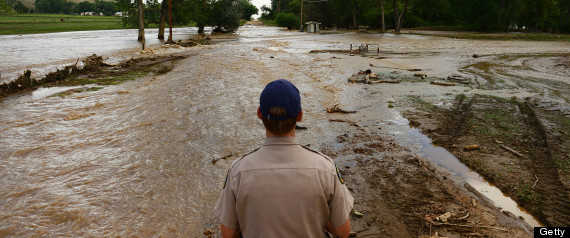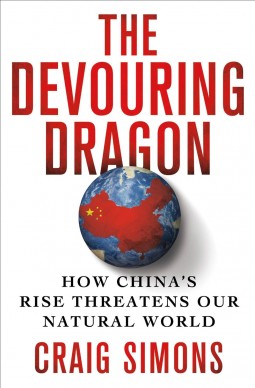 Feature 1 – Flood Winners & Losers : Last month’s deluge cut canyons, real and felt, through many of our lives, but nature helps us remember that floods can build too. In this feature, How on Earth’s Jim Pullen speaks with Boulder’s wetland and riparian ecologist Marianne Giolitto about flood “winners and losers”. Marianne watches over 45,000 acres of the city’s open space and mountain parks wetlands and riparian habitats. Jim and the Boulder Open Space and Mountain Parks are working together on a series of radio vignettes; the first two are “Monitoring Bats” and “Great Storms and Chautauqua.”
Feature 1 – Flood Winners & Losers : Last month’s deluge cut canyons, real and felt, through many of our lives, but nature helps us remember that floods can build too. In this feature, How on Earth’s Jim Pullen speaks with Boulder’s wetland and riparian ecologist Marianne Giolitto about flood “winners and losers”. Marianne watches over 45,000 acres of the city’s open space and mountain parks wetlands and riparian habitats. Jim and the Boulder Open Space and Mountain Parks are working together on a series of radio vignettes; the first two are “Monitoring Bats” and “Great Storms and Chautauqua.”
 Feature 2 – 100 Year Starship Symposium : Back in June we had a feature about a project called the 100 Year Star Ship. During that show we talked with Alires Almon, a member of the project, about the challenges and vision of creating a long-duration mission to send humans to another star. A few weeks ago in Houston, the project held their annual symposium; this year’s theme was titled: “Pathway to the Stars, Footprints on Earth.” Ms. Almon is back with us today to talk about the symposium and what new ideas were discussed.
Feature 2 – 100 Year Starship Symposium : Back in June we had a feature about a project called the 100 Year Star Ship. During that show we talked with Alires Almon, a member of the project, about the challenges and vision of creating a long-duration mission to send humans to another star. A few weeks ago in Houston, the project held their annual symposium; this year’s theme was titled: “Pathway to the Stars, Footprints on Earth.” Ms. Almon is back with us today to talk about the symposium and what new ideas were discussed.
And as we mentioned in today’s headlines, you can learn more about shale oil and gas boom and bust by listening to Jim Pullen’s hour-long talk with expert Deborah Rogers on KGNU’s “It’s the Economy.”
Hosts: Joel Parker, Shelley Schlender
Producer: Joel Parker
Engineer: Joel Parker
Executive Producer: Beth Bartel
Additional Contributions: Jim Pullen
Due to technical problems, this show was not recored to the archive. We apologize that this post does not have an audio podcast of the entire show, but below we do have the audio file of the pre-recorded interview of the “Flood Winners and Losers” :
Podcast: Play in new window | Download (Duration: 6:50 — 9.4MB)
Subscribe: RSS





 Feature #1 – China’s Environmental Impact (start time 4:46): China’s meteoric economic rise is causing harmful side effects, ranging from choking air pollution domestically to threatened forests, wildlife and air quality around the globe. Of course China’s per capita greenhouse gas emissions still pale in comparison to those in the United States, and roughly one-third of China’s CO2 emissions are generated to manufacture goods that are exported to the U.S. and other nations. Craig Simons, a former journalist and author of a recently published book,
Feature #1 – China’s Environmental Impact (start time 4:46): China’s meteoric economic rise is causing harmful side effects, ranging from choking air pollution domestically to threatened forests, wildlife and air quality around the globe. Of course China’s per capita greenhouse gas emissions still pale in comparison to those in the United States, and roughly one-third of China’s CO2 emissions are generated to manufacture goods that are exported to the U.S. and other nations. Craig Simons, a former journalist and author of a recently published book,  Feature #2 – 100 Year Starship (start time 15:35): Science and exploration tend to be long-term commitments. That’s well-known by fans of the “Hitchhiker’s Guide to The Galaxy” series, where the computer Deep Thought did calculations for 7.5 million years to find the answer to The Ultimate Question of Life, the Universe, and everything. However, projects on our world tend to be limited by shorter-term political and funding cycles. So it is hard enough to consider projects that require thinking a decade into the future, beyond many political lifetimes. What about projects that require thinking a century or more into the future, many generations from now? Well, that is exactly what one group of space exploration advocates is working toward. The project is called the
Feature #2 – 100 Year Starship (start time 15:35): Science and exploration tend to be long-term commitments. That’s well-known by fans of the “Hitchhiker’s Guide to The Galaxy” series, where the computer Deep Thought did calculations for 7.5 million years to find the answer to The Ultimate Question of Life, the Universe, and everything. However, projects on our world tend to be limited by shorter-term political and funding cycles. So it is hard enough to consider projects that require thinking a decade into the future, beyond many political lifetimes. What about projects that require thinking a century or more into the future, many generations from now? Well, that is exactly what one group of space exploration advocates is working toward. The project is called the